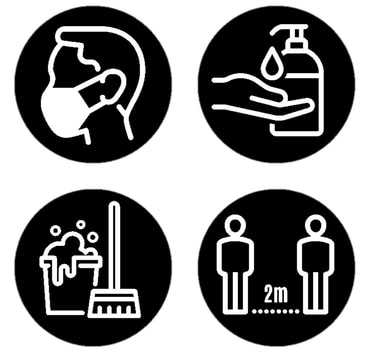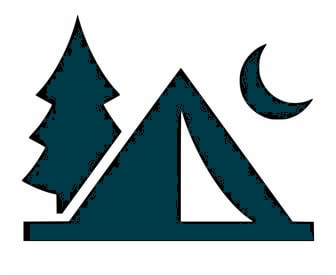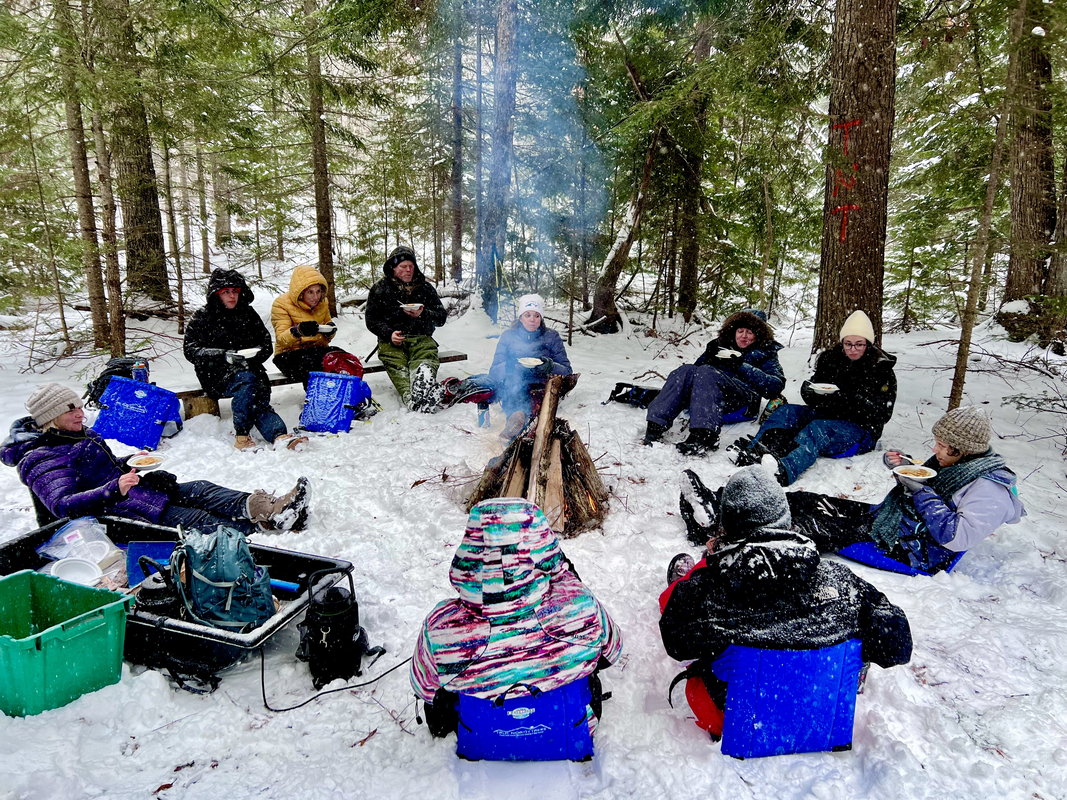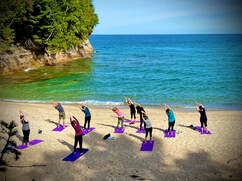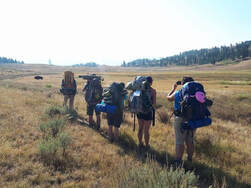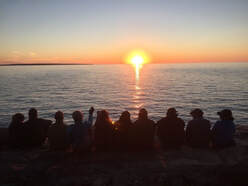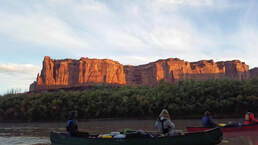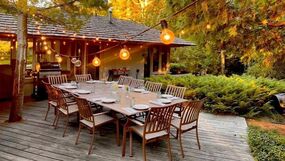"True North Treks inspired, centered, motivated, grounded, challenged, championed, moved me, and more.
Without this experience I don't think I'd be where I am today." - Beth
COVID-19 risk reduction and safety measures
|
Baseline COVID-19 Vaccination Required. We require all of our accepted participants to have at least received their baseline vaccination for COVID-19 prior to going on a True North Trek.
Behavioral Precautions. While TNT's programs largely take place in the well-ventilated outdoor settings, we continue to abide by the following behavioral precautions: (a) If you are exposed to COVID-19 or symptomatic within a week prior to your trek, we ask you to get tested and report any symptoms to TNT personnel; (b) If you are symptomatic of having COVID-19 upon arrival or at anytime during your trek, we ask you to alert TNT personnel immediately so that measures can be taken (e.g., social distancing, quarantining, temperature check/testing, possible evacuation); (c) Mask-wearing is optional, however you may wear one at any time or in any space during your trek; (d) We encourage the regular use of hand sanitizer and practice of good travel hygiene to the trek destination and during group transportation. As information continues to be updated regarding possible risks and recommendations, we reserve the right to make final decisions on what aspects of this protocol will be implemented as it gets closer to the trek. We will be communicating this information regularly with approved participants and are happy to take any questions you may have. |
how to determine what kind of trek is best for you
|
You can determine what type of trek experience is optimal for you based on the following questions:
1) Who will be there? Some treks are for young adult survivors only (e.g., anyone diagnosed with cancer between 18-39 years of age and is still between 18-39), while others include both survivors and their caregivers (e.g., caregiver is broadly defined as a spouse, sibling, parent, or friend). 2) How will we get around in the field? Treks are generally canoeing or backpacking-based as a means of getting from point A to point B. Sometimes there's a little of both, but there's usually one primary mode of locomotion. 3) How long is it? Week-long treks in the back-country run from Sunday afternoon to Saturday morning, whereas long-weekend mini treks run from Wednesday afternoon to Sunday morning. 4) Where will it be? We have run programs in Utah, Montana, Wyoming, Idaho, Oregon, Minnesota, the Bahamas, and the Upper Peninsula (UP) of Michigan. Our guiding criteria for selecting places is mind-blowingly beautiful and as remote as possible. |
2024 Trek Types, Locations & Dates
Treks
September 28-31, 2023
Au Train, Michigan Flyer & Packing List Bathe in nature at the TNT WALDEN Institute, hike along lake forest trails, fall asleep to the stars and the powerful airs of Gichigami, spot bald eagles and fox kits, and inhale the sweet scent of Northern pine.
**This trek is only intended for young adult melanoma survivors who have been referred by the Melanoma Research Foundation.
|
Bubble Experiences
|
Privacy NoticePrivacy NoticeIf you have any questions, please contact us at [email protected]
Privacy Notice
© COPYRIGHT 2008. ALL RIGHTS RESERVED.
Privacy Notice
© COPYRIGHT 2008. ALL RIGHTS RESERVED.

